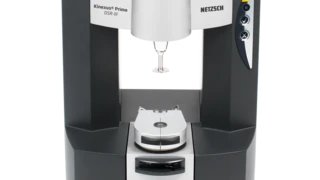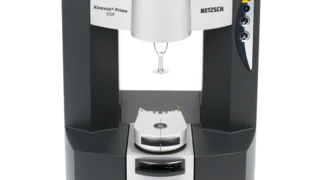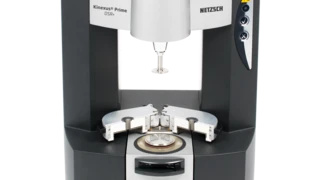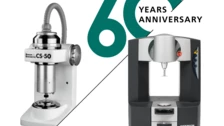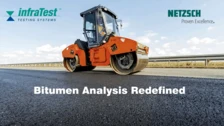
Asphalt and Bitumen
Rheological characterization by Dynamic Shear Rheometers (DSR) is the standard method of classifying asphalt binders for behavior over time, loading conditions and in different climates. While some still use viscosity (vis) and penetration (pen) methods for grading, the use of DSR grading methods provides a much broader range of information about the asphalt performance properties and its suitability for desired applications. This is especially the case with engineered binders; binders designed with elastomeric properties to reduce rutting, aging, thermal and fatigue cracking.
QC Testing
The Kinexus Prime DSR line of asphalt testing systems are widely used by most of the major refiners, producers, additive suppliers, contractors along with local and government departments of transportation. The Kinexus DSR enables quick and easy measuring of a variety of asphalt properties; bitumen grade complying to ASTM, AASHTO, EN and all other standardized testing specifications including Performance-Graded (PG) BinderA performance-based asphalt grading system intended to minimize the potential for rutting, fatigue cracking and thermal cracking as initially defined by Superpave under AASHTO M-320 and M-332 including later equivalents by ASTM, EN, DIN, etc.PG Grade determination to Superpave™ specifications for QA/QC acceptance, True grade analysis for greater process quality control, Master Curve generation for complete product ‘finger printing’ and accumulated StrainStrain describes a deformation of a material, which is loaded mechanically by an external force or stress. Rubber compounds show creep properties, if a static load is applied.strain analysis for rutting behavior on either binder or mix samples. When implemented for quality control, intelligent software will be used for logical decision making which can be used for determination of pass/fail criteria, report generation and escalation decisions for out of spec materials to company procedures.
R&D of Asphalt and Bitumen Binders
The versatility of the Kinexus Prime DSR series means that it can be used as an analytical tool for providing insight to formulation, product interaction, blending and modification optimization. Tests such as CreepCreep describes a time and temperature dependent plastic deformation under a constant force. When a constant force is applied to a rubber compound, the initial deformation obtained due to the application of the force is not fixed. The deformation will increase with time.creep & recoverable compliance and zero shear viscosity for mix & compaction temperature determination are also included within the software. Other areas of interest are yield StressStress is defined as a level of force applied on a sample with a well-defined cross section. (Stress = force/area). Samples having a circular or rectangular cross section can be compressed or stretched. Elastic materials like rubber can be stretched up to 5 to 10 times their original length.stress determination for emulsion coating behavior to reduce sag, optimize film thickness, improve levelling and mixing and compaction. Additionally, the DSR can be used in research of binder strength, RelaxationWhen a constant strain is applied to a rubber compound, the force necessary to maintain that strain is not constant but decreases with time; this behavior is known as stress relaxation. The process responsible for stress relaxation can be physical or chemical, and under normal conditions, both will occur at the same time. relaxation time, retardation time, thermal StressStress is defined as a level of force applied on a sample with a well-defined cross section. (Stress = force/area). Samples having a circular or rectangular cross section can be compressed or stretched. Elastic materials like rubber can be stretched up to 5 to 10 times their original length.stress accumulation, coefficient of binder thermal expansion/contraction and viscosity profiles for performance prediction of spray application of tack coats & emulsions. The ability to create and customize sequences within the rSpace software enables full control of material analysis with the research and development environment.
Roofing
The Kinexus Prime DSR can be used as an alternative testing solution, providing results which relate to several commonly performed roofing asphalt tests. Methods employed by the DSR can be automated, such as determination of softening point, penetration and viscosity. Temperature dependence for binder selection and processing conditions can be investigated with the ability to customize methods and analysis with pass / fail criteria according to each formulation. Using easily customizable testing methods, the DSR can be used to investigate adhesive pull off (tackiness) and prediction of sag.
Which Rheometer suits your needs?
The Kinexus Prime DSR Series
From the production focused DSR-III to the research orientated DSR+, we have a Dynamic Shear Rheometer (DSR) to meet your needs. With optional extras such as a crumb rubber kit or solids fixtures for testing core slices, we can provide the answers to your binder performance.
